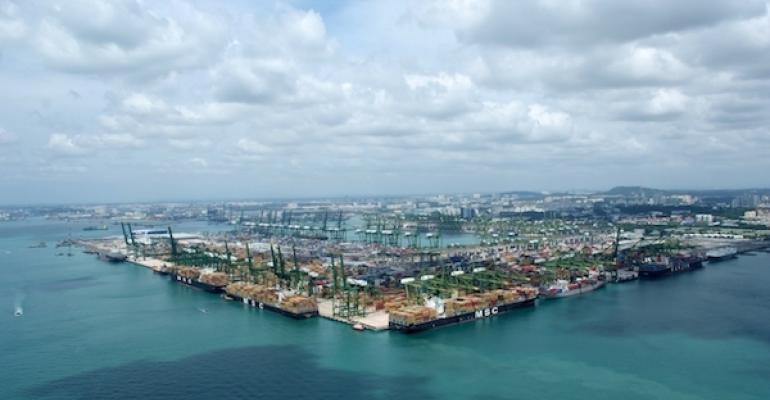Along with the ports of Algeciras, Busan, Gothenburg, Houston, Rotterdam, Singapore and Ningbo (Zhoushan) and the International Harbour Masters' Association, United Kingdom Hydrographic Office and GS1 the task force was set up in 2014 to bring standards from the nautical and logistics sectors together.
This will help ensure that the nautical data on board vessels corresponds to the information from the port, as well as the information used in the logistics chains.
The Port of Rotterdam explained that within the task force, shipping lines and their agents identified the exact areas in shipping business processes that can be optimised when different types of information are provided and shared.
Likewise on the ports side, the port operators and their service providers such as pilots, terminals and bunker suppliers, looked at ways to achieve high quality nautical port data. The international associations were invited to endorse the standards and definitions that the taskforce developed.
Standards for vessel call-specific data are being organised through a digital application called Pronto, which has been developed by the Port of Rotterdam.
“Standardised communication is a basic condition for a future-proof shipping sector,” asserted Joyce Bliek, the port’s Head of Digital Business Solutions.
“Shipping is a global industry. Today’s shipping sector is faced with huge challenges: margins on assets are growing slimmer and the industry is required to cut its CO2 emissions. The more efficiently you can use your vessels, the lower your operational costs and emissions become,” she added.
The first version of Pronto was rolled out at the Port of Rotterdam in May, which it claims can help the some 30,000 vessels calling the port every year to cut waiting time by an average of 20%.
Read more: New Port of Rotterdam app cuts waiting time by 20%, reduces CO2 emissions
Port of Rotterdam is now taking this technology to the Asian market where it is partnering with Singapore’s PSA and the Port of Ningbo to roll out the Pronto app in Asia. There is a hope that big ports such as Singapore and Ningbo will be among the first adopters then smaller ports will likely follow.
It seems clear that Asian ports and carriers can stand to benefit from initiatives such as Pronto especially as ports in the region’s fast developing economies become busier and more congested.
To do so they will have to standardise processes and data submissions and enable them to be conveyed in a digital format. How willing they are to take the necessary measures and how quickly they will adopt the standards remains unclear.
Ningbo and Singapore were among the ports selected by shipping lines to participate in the taskforce but they are not using Pronto yet and there is no indication they are as enthused about the app as its creators.
Both ports are run by essentially state-owned entities with a single operator dominating ownership and operation of the terminals. They have established certain schemes and solutions of their own to handle port operations. It is uncertain how willing they would be to adopt an external system or provide critical operational information to competing ports.
Deflecting the question slightly Bliek said: “The goal is not to come to one single solution. But we do believe that solutions must be compatible by using the same standards.”
Bliek maintained however that its app can help customers as well as other ports. “We listened to the needs of our customers. These are global customers and they need global solutions. Shipping lines can gain a lot of efficiency when the nautical data on board of vessels corresponds to the information in ports, as well as the information used in logistics chains,” she said.
“For us as the port of Rotterdam we believe that an efficient port starts with reliable information. With the standards as a base, we can not only optimise the services to our clients, but also develop new services that make the logistics chain more efficient,” Bliek added.
Pronto provides shipping companies, agents, terminals and other service providers with a shared platform that they can use to exchange information about their port calls,” she concluded.
Copyright © 2024. All rights reserved. Seatrade, a trading name of Informa Markets (UK) Limited.
Add Seatrade Maritime News to your Google News feed.  |


